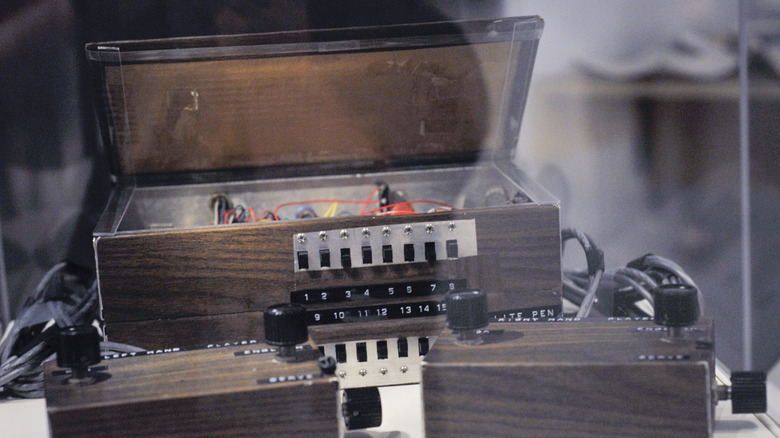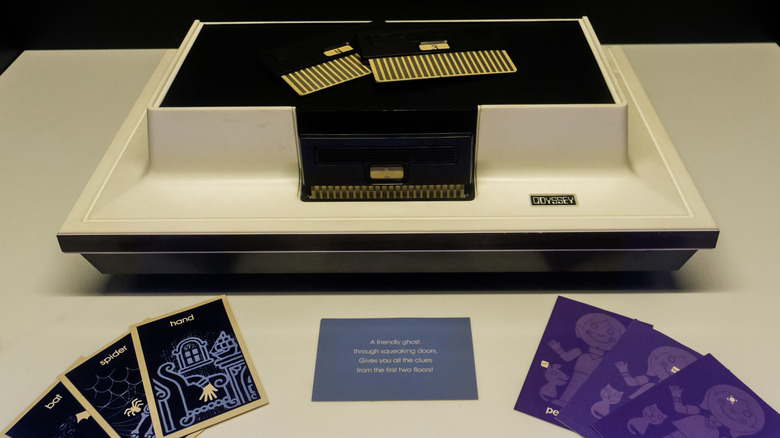Who Really Invented The First Video Game Console?
Video games are big business. In 2021, world-wide revenue for video games was over $180 billion (via Newzoo) and billions of game consoles have been sold over the last 50 years (via Statista). Yes, 50 years.
Before Microsoft's Xbox launched in 2001; before Sony's PlayStation came out in 1994; before Sega launched the Master System in 1985; before Nintendo released the Famicom in 1983; before the first Atari came out in 1977; before all of them, there was Ralph Baer and the Magnavox Odyssey in 1972 (via Hongkiat).
The Odyssey wasn't a graphical powerhouse. It could display lines and dots in black and white and it came with plastic overlays for the TV screen to augment its basic graphics. But those lines and dots would be like jet fuel for the meteoric rise of the video game industry. One of the first games for the Odyssey was ping pong which directly inspired the Pong arcade game which came out the same year, catapulting video games into the American zeitgeist.
Greatest original thought of the 20th century?
The idea for a video game console first came to Baer in 1951 when he was designing a TV and proposed adding hardware to it to play a game. That original idea was shot down, but it germinated in his head for the next 15 years (via Ralph Baer).
In 1966 he was in charge of equipment design for a defense contractor and the idea came back to him. Within 24 hours he had written a four-page paper outlining his idea. Just to be clear, he was outlining the very idea of what a video game is. Every lap in Forza, every bounty in Red Dead Redemption, every chocobo in Final Fantasy stems back to this paper.
Baer's defense contractor overlords weren't exactly enthusiastic about his idea, but they gave him time and money just to see where it would go. Over the next few years, Baer and a small team of engineers fleshed out their prototype and in 1971 they managed to convince a skeptical team of Magnavox executives to mass-produce and market the nascent console.
The 1972 launch of the Magnavox Odyssey didn't shake the foundations of the world. It wasn't a flop, but it didn't change the nature of the entertainment industry like Atari and Nintendo. But it did shine a light that others could follow.

